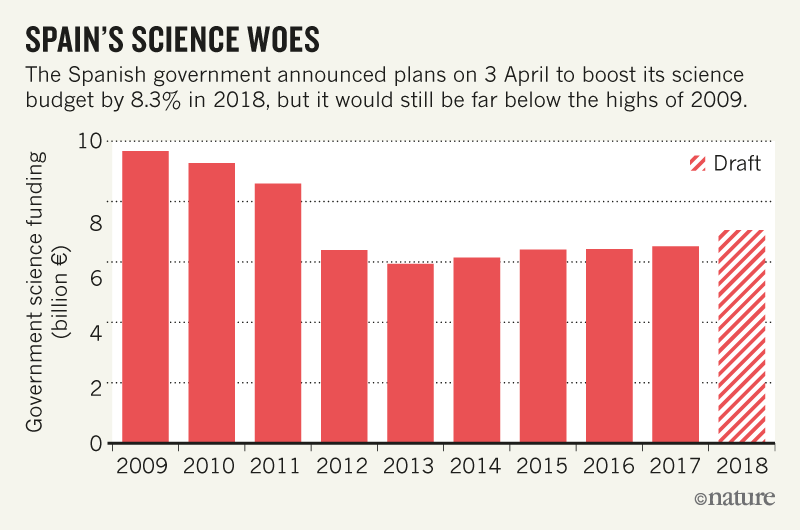A group of leading scientific organizations in Spain have gathered over 277,000 signatures to demand public funding for scientific research.
The petition, which insisted that parliament stop the "progressive abandonment of science" in Spain, has become the largest ever petition on science-policy in the nation.
"Science, like health and education, is deeply supported by society: we need a state pact for science to reflect that," said Alicia Durán, a physicist at the Spanish National Research Council (CSIC) who helped deliver the petition to parliament.
After reaching its peak in 2009, public funding for science in Spain plunged by 39 percent in 2013.
 (Nature)
(Nature)
Now that the country has had time to recover from the global financial crisis, Durán and her fellow petitioners want to see the government restore science funding to its 2009 record level by 2020.
Thankfully, it appears as though the Spanish government largely agrees. Mere days before the petition was formally sent, the government gave science funding an 8.3 percent boost in its 2018 budget draft.
If the new budget is officially approved, public funding for science will go from just €5.9 billion to €7 billion in the coming year.
"We welcome the [2018] increase. It's an essential step, but just the first one," said chemist Nazario Martín.
"At this rate, and taking into account inflation, we would need another decade to go back to 2009's levels," he added.
While the boost in science funding may look hopeful on the surface, many scientists are not so sure. In the past, the Spanish government has artificially inflated their science spending by including industry loans in its calculations.
And this year, about 60 percent of the proposed science budget will come from such loans, which ultimately must be paid back.
Still, the petitioners are hopeful that the political environment in Spain is ripe for change.
"Since there is no party with absolute majority, they are forced to reach agreements," Martín said.
"It's a unique opportunity for a state pact."
Maybe, for instance, a state pact that improves Spain's science funding every year.
"We should at least achieve a commitment from all parties that the science budget should always increase, regardless of the governing party," said Spain's secretary of state for science, Carmen Vela.
"We have not achieved this agreement yet, but we will continue to work on it."
Science AF is ScienceAlert's new editorial section where we explore society's most complex problems using science, sanity and humor.
